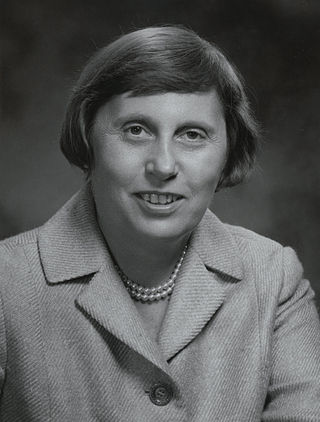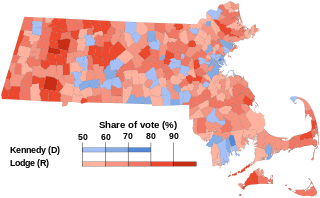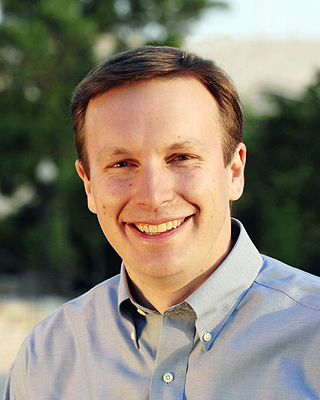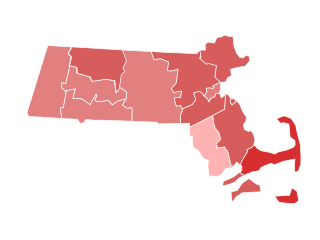
Ella Rosa Giovianna Oliva Grasso was an American politician and member of the Democratic Party who served as the 83rd Governor of Connecticut from January 8, 1975, to December 31, 1980, after rejecting past offers of candidacies for Senate and Governor. She was the first woman elected to this office and the first woman to be elected governor of a U.S. state without having been the spouse or widow of a former governor. She resigned as governor due to her battle with ovarian cancer.

Abraham Alexander Ribicoff was an American Democratic Party politician from the state of Connecticut. He represented Connecticut in the United States House of Representatives and Senate and was the 80th Governor of Connecticut and Secretary of Health, Education, and Welfare in President John F. Kennedy's cabinet. He was Connecticut's first and to date only Jewish governor.

The 1970 United States Senate elections was an election for the United States Senate. It took place on November 3, with the 33 seats of Class 1 contested in regular elections. Special elections were also held to fill vacancies. These races occurred in the middle of Richard Nixon's first term as president. The Democrats lost a net of three seats, while the Republicans and the Conservative Party of New York picked up one net seat each, and former Democrat Harry F. Byrd Jr. was re-elected as an independent.

The 1964 United States Senate elections were held on November 3. The 33 seats of Class 1 were contested in regular elections. Special elections were also held to fill vacancies. They coincided with the election of President Lyndon B. Johnson by an overwhelming majority, to a full term. His Democratic Party picked up a net two seats from the Republicans. As of 2023, this was the last time either party has had a two-thirds majority in the Senate, which would have hypothetically allowed the Senate Democrats to override a veto, propose constitutional amendments, or convict and expel certain officials without any votes from Senate Republicans. In practice, however, internal divisions effectively prevented the Democrats from doing so. The Senate election cycle coincided with Democratic gains in the House in the same year.

Horace Seely-Brown Jr. was an American politician and a US Representative from Connecticut.

The 1986 United States House of Representatives elections in South Carolina were held on November 4, 1986, to select six Representatives for two-year terms from the state of South Carolina. The primary elections for the Democrats and the Republicans were held on June 10 and the runoff elections were held two weeks later on June 24. All four incumbents who ran were re-elected and the Democrats picked up one of the two open seats vacated by the Republicans. The composition of the state delegation after the elections was four Democrats and two Republicans.

The 1990 United States House of Representatives elections in South Carolina were held on November 6, 1990 to select six Representatives for two-year terms from the state of South Carolina. The primary election for the Republicans was held on June 12. All six incumbents were re-elected and the composition of the state delegation remained four Democrats and two Republicans. As of 2016, this is the last time that Democrats won a majority of congressional districts in South Carolina.

The 1956 United States House of Representatives elections in South Carolina were held on November 6, 1956, to select six Representatives for two-year terms from the state of South Carolina. All five incumbents who ran were re-elected and the open seat in the 5th congressional district was retained by the Democrats. The composition of the state delegation thus remained solely Democratic.

The 1942 United States House of Representatives elections in South Carolina were held on November 3, 1942 to select six Representatives for two-year terms from the state of South Carolina. All six incumbents were re-elected and the composition of the state delegation remained solely Democratic.

The 1950 United States House of Representatives elections in South Carolina were held on November 7, 1950 to select six Representatives for two-year terms from the state of South Carolina. Four incumbents were re-elected, but Hugo S. Sims, Jr. of the 2nd congressional district and James Butler Hare of the 3rd congressional district were defeated in the Democratic primaries. The seats were retained by the Democrats and the composition of the state delegation remained solely Democratic.

The 1936 United States House of Representatives elections in South Carolina were held on November 2, 1936, to select six Representatives for two-year terms from the state of South Carolina. All five incumbents who ran were re-elected and the open seat in the 4th congressional district was retained by the Democrats. The composition of the state delegation thus remained solely Democratic.

The 1902 United States House of Representatives elections in South Carolina were held on November 4, 1902 to select seven Representatives for two-year terms from the state of South Carolina. Four incumbents were re-elected and the three open seats were retained by the Democrats. The composition of the state delegation after the election was solely Democratic.

The 1952 United States Senate election in Massachusetts was held on November 4, 1952, in which Incumbent Republican Henry Cabot Lodge Jr. lost to Congressman and future President John F. Kennedy, the Democratic Party nominee.

The 2012 United States Senate election in Connecticut was held on November 6, 2012, in conjunction with the 2012 U.S. presidential election, other elections to the United States Senate in other states, as well as elections to the United States House of Representatives, and various state and local elections. Primaries to elect Senate candidates from the Republican and Democratic parties were held on Tuesday, August 14, 2012.

The 1946 United States Senate election in Massachusetts was held on November 5, 1946. Incumbent Democratic Senator David I. Walsh ran for re-election to a fifth term in office, but was defeated by Republican former Senator Henry Cabot Lodge Jr., who returned from service in World War II.

The 1944 United States Senate special election in Massachusetts was held on November 7, 1944. Republican Governor Leverett Saltonstall was elected to finish the term of Henry Cabot Lodge Jr., who had resigned from the Senate to serve in World War II.

The 1970 Connecticut gubernatorial election was held on November 3, 1970.

The 1962 United States Senate special election in New Hampshire took place on November 6, 1962, to elect a U.S. Senator to complete the unexpired term of Senator Styles Bridges, who died on November 26, 1961. New Hampshire Attorney General Maurice J. Murphy Jr. was appointed on December 7, 1961 by Governor Wesley Powell to fill the vacancy until a special election could be held.
The 1944 Massachusetts general election was held on November 7, 1944, throughout Massachusetts. Primary elections took place on July 11.
The 1942 Massachusetts general election was held on November 3, 1942, throughout Massachusetts. Primary elections took place on September 15.
















